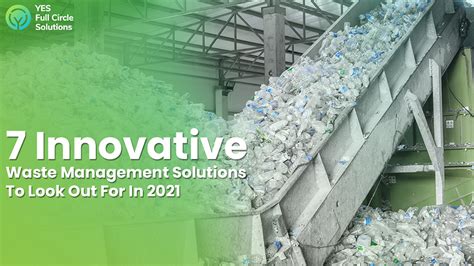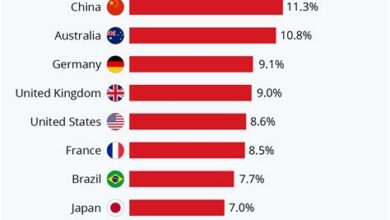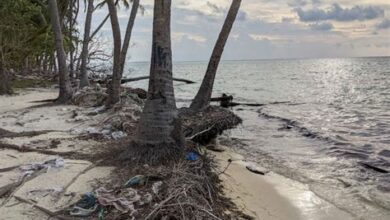Innovative Waste Management Solutions Introduced in the Maldives

Discover the challenges and technologies in waste disposal, recycling programs, waste-to-energy, and composting initiatives, along with innovative partnerships in waste management.The Maldives, known for its stunning beaches and crystal-clear waters, has been facing a growing challenge in waste disposal. With the influx of tourists and the limited land availability for waste management, the country has been grappling with finding sustainable and efficient solutions for handling its waste. In response to this pressing issue, the government and various organizations have introduced innovative waste management solutions to tackle the environmental and social impacts of improper waste disposal. This blog post will delve into the challenges in waste disposal that the Maldives faces, the introduction of recycling programs, the implementation of waste-to-energy technology, the promotion of composting initiatives, and the innovative partnerships in waste management that are driving positive change in the country. Join us as we explore the groundbreaking efforts being made to transform waste management in the Maldives.
Challenges in waste disposal
The Maldives, like many other island nations, faces unique challenges when it comes to waste disposal. The limited land area and fragile marine ecosystems make traditional methods of waste management difficult to implement. This has led to a growing problem of waste accumulation in the Maldives, impacting both the environment and public health.
One of the major challenges in waste disposal is the lack of space for landfill sites. With limited land area, finding suitable locations for waste disposal is a significant hurdle. This has resulted in overcrowded and overburdened landfill sites, leading to issues such as groundwater contamination and air pollution.
Additionally, the reliance on incineration as a waste disposal method has raised concerns about air quality and public health. The release of harmful pollutants during the burning of waste has posed a significant risk to the environment and the people of the Maldives.
Introduction of recycling programs
Recycling programs have become increasingly important in the Maldives as the country grapples with the challenges of waste management. With the rise in population and tourism, the amount of waste being generated has also increased, putting a strain on the existing waste disposal methods. In response to this, the government has introduced recycling programs aimed at reducing the amount of waste that ends up in landfills and ultimately in the ocean.
One of the key components of the recycling programs is the establishment of recycling centers in major cities and tourist areas. These centers are equipped to handle different types of recyclable materials such as plastic, paper, glass, and metal. Citizens and businesses are encouraged to separate their waste and bring it to these centers where it can be properly sorted and processed for recycling.
In addition to the physical infrastructure, the government has also launched awareness campaigns to educate the public about the importance of recycling and the impact of waste on the environment. This includes school programs, community workshops, and social media campaigns to reach a wide audience. By encouraging active participation in recycling programs, the aim is to create a culture of sustainability and environmental responsibility among the people of the Maldives.
Implementation of waste-to-energy technology
Waste-to-energy technology has been introduced as an innovative solution in the Maldives to address the challenges in waste disposal. This technology involves the process of converting waste materials into usable energy such as heat, electricity, or fuel. The implementation of waste-to-energy technology has brought about significant improvements in waste management practices on the islands.
The introduction of waste-to-energy technology has provided a sustainable way to manage the increasing amount of waste generated in the Maldives. This has helped to reduce the environmental impact of landfills and has contributed to the generation of clean, renewable energy. The implementation of waste-to-energy technology has also created opportunities for economic development and job creation in the country.
Innovative partnerships between the government, private sector, and international organizations have played a crucial role in the successful implementation of waste-to-energy technology in the Maldives. These collaborative efforts have facilitated the exchange of knowledge, expertise, and resources to support the development and operation of waste-to-energy facilities across the islands.
Promotion of composting initiatives
Innovative waste management solutions have been introduced in the Maldives in an effort to promote composting initiatives and reduce the environmental impact of waste disposal. Composting is a natural process that helps to recycle organic waste into nutrient-rich soil, which can then be used to fertilize gardens and agricultural lands. By promoting composting initiatives, the Maldives aims to reduce the amount of organic waste that ends up in landfills or incineration facilities, thereby lowering greenhouse gas emissions and contributing to a more sustainable environment.
The government has implemented various composting programs across the islands, providing education and resources to citizens to encourage them to compost their food scraps and garden waste. These programs include the distribution of compost bins, workshops on composting techniques, and support for community composting projects. By making composting accessible and convenient for residents, the government hopes to shift the cultural mindset towards organic waste and demonstrate the benefits of recycling through composting.
Furthermore, the promotion of composting initiatives has led to partnerships with local businesses and organizations to support sustainable waste management practices. Hotels and resorts, for example, have incorporated composting into their waste management strategies, diverting food waste from their kitchens and gardens into composting facilities. Additionally, schools and community centers have established composting sites to engage students and residents in environmental education and hands-on composting activities. These partnerships not only support the growth of composting initiatives but also foster a sense of environmental stewardship within the community.
Innovative partnerships in waste management
One of the most effective ways to address the growing issue of waste management is through innovative partnerships between different sectors of society. These partnerships can involve businesses, governments, and non-profit organizations working together to find new and sustainable solutions to managing waste. By collaborating in this way, these entities can pool their resources and expertise to develop and implement more effective waste management strategies.
For example, a partnership between a local government, a waste management company, and a community organization could lead to the establishment of a recycling program in a neighborhood that previously lacked access to such services. This type of collaboration can help to increase recycling rates and reduce the amount of waste that ends up in landfills, benefiting both the environment and the local community.
In addition to addressing the practical aspects of waste management, these partnerships can also raise awareness and engage the public in efforts to reduce waste. By working together, these diverse stakeholders can develop educational initiatives and outreach programs that promote composting, recycling, and other sustainable waste management practices. Through their combined efforts, innovative partnerships in waste management can make a significant impact on the way we approach and handle waste in our communities.





